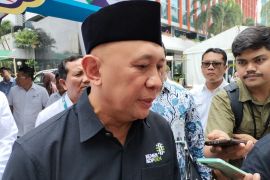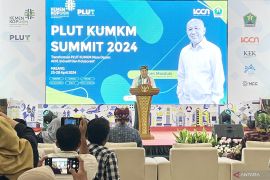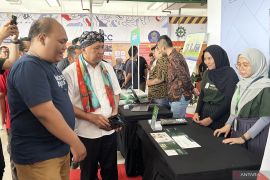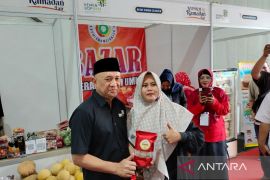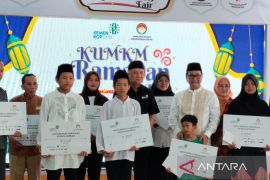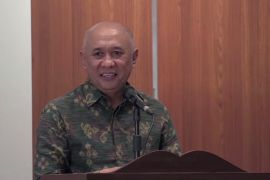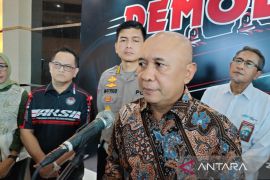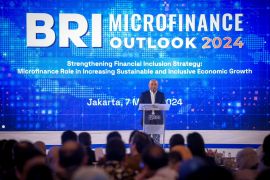"Our local apparel industry, (is) of course (at a disadvantage), with these illegally imported clothes. Imagine, it takes up 31 percent of our domestic market. On the other hand, imported clothes from China take up 17.4 percent," Minister Teten Masduki highlighted here on Tuesday.
The minister cited BPS data showing that the potential value of illegal clothes imports in 2018 reached Rp89.37 trillion (US$6 billion). In 2019, it stood at Rp89.06 trillion (US$5.9 billion), and in 2020, the figure climbed to Rp110.28 trillion (US$7.3 billion).
In 2021 and 2022, it reached Rp103.68 trillion (US$6.9 billion) and Rp104.41 trillion (US$6.92 billion), respectively.
Illegal imports put at least 533,217 micro and small industry players at risk, exacerbating the situation, which is already bad considering that the sector saw a decline in the past three years, he noted.
"Meanwhile, the number of workforce employed in that industry per 2021 was capped at 999,480 people. With illegal clothes imports, it would (compromise) our local apparel industry, which is currently at its low," he added.
Masduki also informed that currently, the government is working to end the sales of those items.
Second-hand clothes vendors impacted by the policy can contact 1500-587 or file a complaint via WhatsApp on 08111451587. Both numbers are managed by the Cooperatives and Small and Medium Enterprises Ministry.
"Of the complaints that came in, on average, they ask for a solution to their business. We will facilitate their request to meet local fashion brands," Minister Masduki said.
As part of business solutions, the ministry has also prepared programs for vendors and manufacturers of textile products, he added.
He listed some of the programs, including the Proudly Made in Indonesia Initiative, the creation of fashion business clusters, the promotion of Indonesia as a hub of global modest fashion, and the offering of business credit, among others.
The ministry is also working with the Trade Ministry to support the recovery of the domestic textile sector, Masduki said.
The two ministries are aggressively pursuing efforts to stop second-hand clothes imports as well as formulating non-tariff restrictions for imported apparel, he said.
Related news: Used clothes merchants seek support for accessing local products
Related news: Govt allows retailers to sell used imported clothes during Ramadan
Related news: Ministry to prioritize destroying illegally imported used clothing
Translator: Kuntum Khaira Riswan, Mecca Yumna
Editor: Azis Kurmala
Copyright © ANTARA 2023

